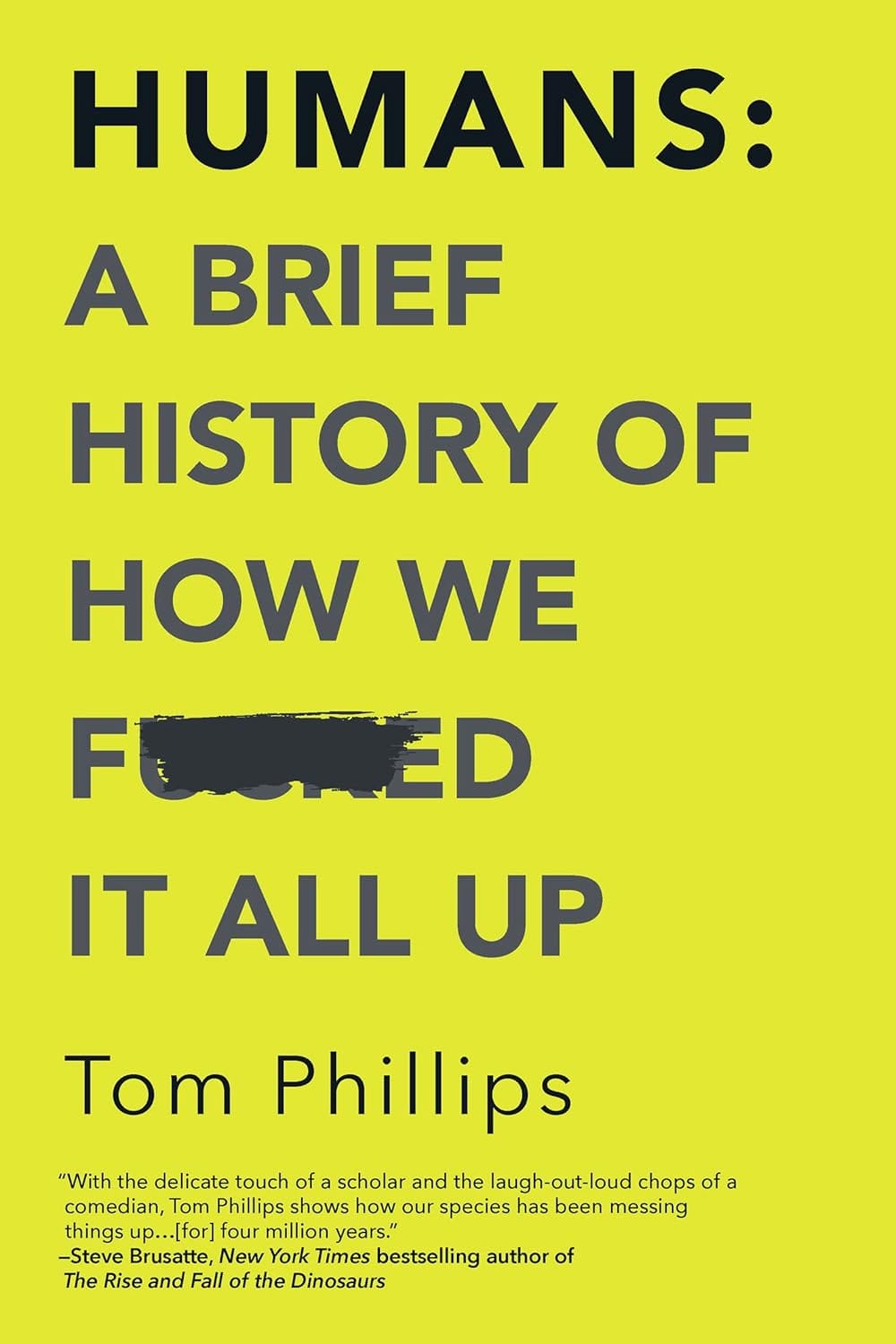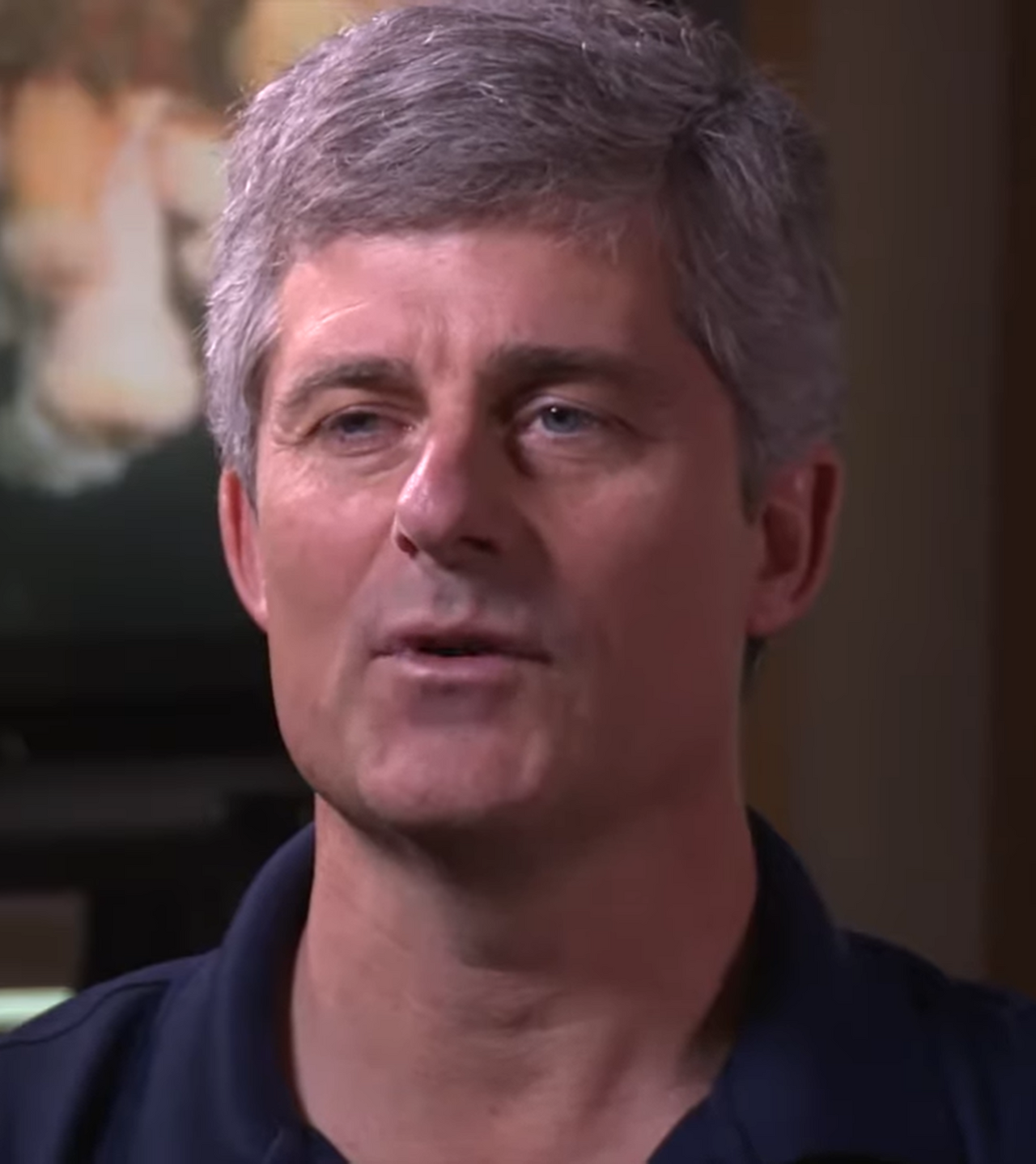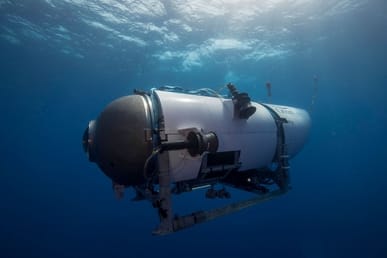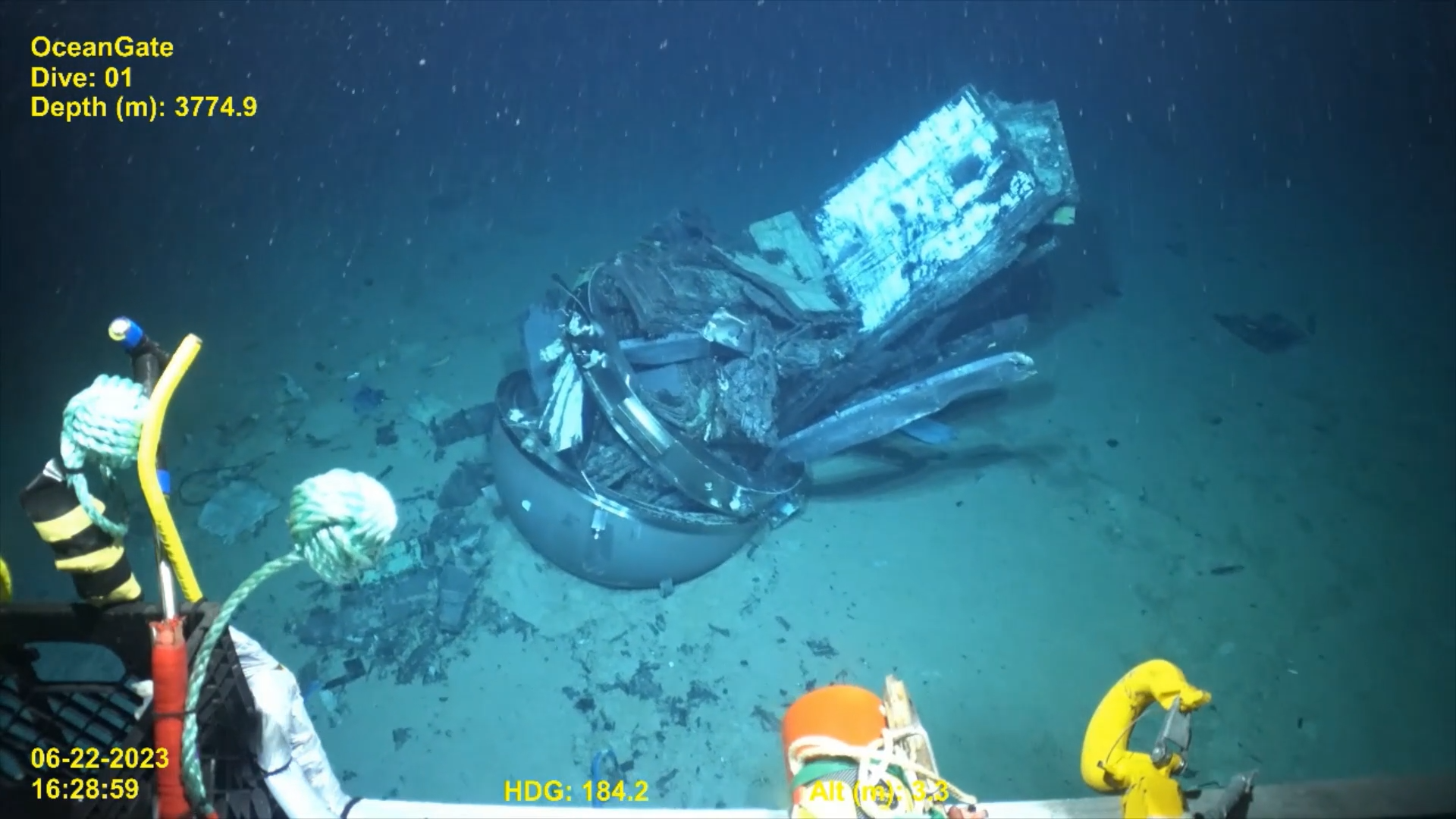When Stupid is Dangerous
History is often seen as an outline of man's continual advancement through time. In reality, it's one dumb, arrogant stumble after another.

In the Year of Our Lord 892, Sigurd Eysteinsson (aka Sigurd the Mighty) was spoiling for a fight. Siggy was the second Earl of Orkney, a Viking who led the conquest of what is now northern Scotland. Sig took time out to pick a fight with a native ruler, Máel Brigte the Buck-Toothed. Not wanting to bust out in an all-out war, The Mighty Sigurd and his buck-toothed opponent agreed to a 40-man-a-side battle. In what was to be a challenge to Karma as well as his opponent, he brought 80 men. Máel Brigte and his men were wiped out. In celebration, Siggy decapitated Brigte and fastened his head to his saddle for a triumphant ride home. During that rough ride, Máel Brigte sunk a fang into the Mighty man's leg. The scratch became infected, the infection spread, and Sigmund the Mighty was no more - defeated by a dead man who, his whole life, felt that his need for a good orthodontist was a liability and not a lethal weapon.
When in Scotland, pay your respects to Siggy. Poke around for a burial marker with the words, "Ain't That a Bitch?" written on it in Old Norse.
I read this hilarious tidbit of history in Tom Phillips' book, "Humans: A Brief History of How We F*cked it All Up." It's a light-hearted romp through history. A history that focuses on our foibles, our hubris, and our bottomless stupidity that consistently brings us to catastrophic failure. Not just the antics of goobers with names like "Sigmund the Mighty," but many people thought to be brilliant, respected academics, scientists, and citizens elected because of their perceived leadership qualities.

Phillips includes stories throughout history of wrong-headed assumptions and conclusions. Here are a handful of (in hindsight) silly predictions by otherwise brilliant men:
• Carl Wilhelm Scheele A genius Swedish chemist who discovered many elements—including oxygen, barium and chlorine—but had a habit of tasting each of his new discoveries. Died in 1786 of exposure to substances including lead, hydrofluoric acid and arsenic.
• In 1876, William Orton, the president of Western Union, advised a friend against investing in Alexander Graham Bell’s new invention—the telephone—by telling him: “There is nothing in this patent whatever, nor is there anything in the scheme itself, except as a toy.”
• In 1912, Guglielmo Marconi, the inventor of radio, predicted that “the coming of the wireless era will make war impossible, because it will make war ridiculous.” In 1914, the world went to war.
• On October 16, 1929, the eminent Yale economist Irving Fisher predicted that “stock prices have reached what looks like a permanently high plateau.” Eight days later, stock markets around the world crashed, as a bubble of speculation fueled by easily available debt finally burst. The global economic depression lasted for years; in the wake of the financial crisis, voters in many democracies increasingly turned to populist authoritarian politicians.
• In 1932, Albert Einstein predicted that “there is not the slightest indication that [nuclear energy] will ever be obtainable.”
• In 1966, the eminent designer Richard Buckminster Fuller predicted that by the year 2000, “amid general plenty, politics will simply fade away.”
Confirmation biases guide us, our inability to see the big picture focuses us on micro trends, and worst of all, we fall victim to groupthink. It's difficult to go against the family, clan, or community. So we agree to agree because, well, a lot of our friends think it, so it must be true! And besides, who wants to be ostracized by our own tribe?
Phillips writes about various world leaders whose decisions were disastrous for their own nations. Yet people were attracted to them, followed them, and desperately fought for them. It's easy (in hindsight) to wonder how in the hell they fell for such madness.
(Does any of this sound familiar?)
Beyond politics (and though not mentioned in the book,) recall that just a year ago the Titan submersible imploded while on a dive to view the Titanic. The CEO of OceanGate, Stockton Rush, had been a pilot and was heir to a high-tech fortune. He was convinced that underwater adventure tourism would be a great business. At $250,000 per ride to see the Titanic, it seemed like it would be profitable. But deep-diving submersibles are notoriously difficult to engineer and build properly. Stockton partnered with NASA, Boeing, and the University of Washington. All of these groups would later say that the only input they had over design, safety features, and testing was roundly ignored. The lights on board the sub were from Camperworld. Controls were a repurposed X-Box controller. The transparent viewport (window) on its forward bow was only certified to a depth of 4,300 ft - a third of the depth required to reach the Titanic's wreck
From Wikipedia: In a 2022 interview, Rush told CBS News, "At some point, safety just is pure waste. I mean, if you just want to be safe, don't get out of bed. Don't get in your car. Don't do anything." In a 2021 interview, "I've broken some rules to make [Titan]. I think I've broken them with logic and good engineering behind me. The carbon fibre and titanium, there's a rule you don't do that. Well, I did."
Rush refused to have any agency or regulatory body inspect or certify the sub as seaworthy. Consultants, internal and external engineers, technology groups, observers and journalists expressed serious safety concerns. Rush consistently insisted that "industry standards were stifling innovation."



OceanGate CEO Stockton Rush. | The Titan | part of the debris field of the Titan wreckage.
Several dives (with paying customers or journalists) were completed over the Titanic wreck, several were aborted due to various tech failures. On June 18, 2023, the Titan descended on a dive to view the Titanic with Rush and four passengers on board. They lost communication several times with the support ship (not uncommon for the Titan) and a few hours into the dive, ceased contact entirely. Recovery efforts and investigations afterward indicate that the vessel imploded at a depth of around 11,000 feet. Pressures exerted on the human body at that depth would have crushed and killed all on board within milliseconds.
During construction, one of the consultants for OceanGate had emailed Rush, warning him that the development cycle and refusal to have the ship certified was "potentially placing yourself and your clients in a dangerous dynamic." He then added that in Rush's "race to Titanic, "you are mirroring that famous catch cry: 'She is unsinkable.'"
Someone had his number.
Like our friend who was killed by a Dead-head with bad teeth, most of the world's woes (and our personal ones as well,) are caused by sheer stupidity often amplified by arrogance. And the dumber we are, the harder we charge ahead.
"Humans: A Brief History of How We F*cked It All Up" is a history book that highlights the worst mistakes that we've made as a species, so naturally, there has to be a discussion of Hitler. Phillips doesn't disappoint. Often discussed as "a ruthlessly efficient, evil genius," you would be surprised at the sheer quantity of absurd decisions that brought him to and held him in power. War historians mostly agree that had he actually been more smart than ruthless, he would have conquered all of Europe and most of Asia.
Hitler was actually an incompetent, lazy egomaniac and his government was an absolute clown show. In fact, this may even have helped his rise to power, as he was consistently underestimated by the German elite. Many of his opponents had dismissed him as a joke for his crude speeches and tacky rallies. He was a “pathetic dunderhead” according to one magazine editor; another wrote that his party was a “society of incompetents” and that people should not “overestimate the fairground party.” Even after elections had made the Nazis the largest party in the Reichstag, people still kept thinking that Hitler was an easy mark, a blustering idiot who could easily be controlled by smart people.
I repeat, does any of this sound familiar?
Why did the elites of Germany so consistently underestimate Hitler? Possibly because they weren’t actually wrong in their assessment of his competency—they just failed to realize that this wasn’t enough to stand in the way of his ambition. As it would turn out, Hitler was really bad at running a government. As his own press chief, Otto Dietrich, later wrote in his memoir The Hitler I Knew, “In the twelve years of his rule in Germany, Hitler produced the biggest confusion in government that has ever existed in a civilized state.”
• He "regularly made important decisions without even looking at the documents his aides had prepared for him." He didn't care for policy discussion with his underlings, but he was happy to rant and ramble about whatever he was rattled about at the time. Through his procrastination and disinterest, the decisions of state were often delayed or ignored.
• He was unreliable, and this created discord and competition for his attention among the staff and his generals. It sowed division in the ranks. (Some saw this as part of his "genius.")
• He was lazy, often rising at 11AM and not wishing to be disturbed until he had had his lunch and read his press clippings. And, btw, he hated the press but was obsessed with celebrity, he was delighted when something positive was printed about him. He wrote to a friend, “I believe my life is the greatest novel in world history.”
• Even with his lazy schedule, he hated Berlin where there were so many decisions to be made. Adolph regularly retreated to his private country retreat in the Obersalzberg where he would rise at 2PM. (Do you think there was a golf course? Does Obersalzberg mean "Mar-A-Lago" in German?)
• He was not a learned man, and deeply insecure about his lack of knowledge. Nevertheless, he would not tolerate being corrected. His preconceptions were not to be questioned.
• His insecurities made him intolerant of being kidded or teased, even if delivered in good spirits, but he loved for his subordinates to be the butt of jokes. (Gosh, am I dreaming? This sounds sooooo familiar!)
There is no doubt that this reporting is all true. On the morning of D-Day, the Germans found themselves out of position - Hitler and his high command had been certain that the Allied landing would occur in the Pas de Calais region, north of the River Seine where the English Channel is narrowest. A little spycraft and Allied subterfuge convinced Hitler to put the bulk of his panzer divisions there. When it became apparent to German officers on the ground that the Allies were landing on the beaches of Normandy, they could not, under orders, wake Hitler for him to approve moving his tanks. Even then, he didn't immediately send reinforcements because he believed it was a diversionary tactic.
By D-Day, the "brilliant tactician" and Nazi genius had already made the ultimate mistake in warfare: he would invade Russia and try to take Moscow in winter. I'm not going to review this blunder, even a C- history student knows that this bold yet idiotic move ultimately cost him the war and the German empire, such as it was. And the same stupid decision had been made by one of history's other brilliant dictators only 130 years prior. Napoleon's defeat in Russia cost him his own throne and weakened France. But none of this concerned Adolph, he thought he was smarter than the other smart dictator.
C'est la guerre.
Hitler’s personal failings didn’t stop him having an uncanny instinct for political rhetoric that would gain mass appeal, and it turns out you don’t actually need to have a particularly competent or functional government to do terrible things. We tend to assume that when something awful happens there must have been some great controlling intelligence behind it. It’s understandable: How could things have gone so wrong, we think, if there wasn’t an evil genius pulling the strings? The downside of this is that we tend to assume that if we can’t immediately spot an evil genius, then we can all chill out a bit because everything will be fine.
So yes, I am making the point that we continue to f**k it all up. Trump is once again, president. Many of his former (and even current) staff, cabinet, and generals describe him as completely, utterly incompetent. Several choices for his upcoming cabinet (and his VP) have made similar comments in the past, but in their lust for power, have since repented. They wanted to be on board the Trump Train. They're all quietly content with their confirmation biases, overconfidence, and engagement in groupthink.

Many of these sycophants are content to serve as Trump's henchmen. Kash Patel (FBI) has a "list" of "Deep State" employees who have wronged him or Trump. He has another list of members in the media that don't give them enough respect. Pete Hegseth (Dept. of Defense) has a known history of alcoholism and also has a list of "woke" military officers that various groups would like to see him axe. Tulsi Gabbard (Intelligence<?>) has been described as a "Russian Asset," and is known to repeat Russian political talking points and promote their propaganda. Multi-billionaire African immigrant Elon Musk (Gov. "Efficiency Commission", a non-Senate confirmed position,) proposes to cut 2 trillion dollars from the US Budget of 7 trillion. He noted that it might "create hardship at first." Not for him, mind you, his business relies on billions of US government contracts that you can bet won't be cut. Nominee for Sec. of Education Linda McMahon once lied about having an education degree in order to serve one single year on a state board of education. She was CEO of a wrestling league, and, like all Republicans, wishes to privatize public education.
And then there's RFK, Jr., nominee for Sec. of Health and poster boy for the Power of Stupid. A vaccine denier, most people thought his constant criticism of vaccines was limited to Covid vaccinations. Recently, he has made clear that he "has questions" about the safety and efficacy of the polio and measles vaccines. He also proposes to do away with fluoridation of public water supplies. The so-called "danger" of fluoride originated from a conspiracy theory that everyone else thought was debunked in the 1960s, and lampooned brilliantly in Stanley Kubrick's "Dr. Strangelove."

Senate Minority Leader Mitch McConnel, a polio survivor who still has a limp to remind him of his childhood, has tried to convince the black-sheep-of-the-Kennedy-family that, you know, a lot of medicines actually work. Oh, and vaccines are considered one of the greatest medical advances in history.
McConnell remembers.
Kennedy has no medical training other than his "Google Research." But he is convinced of his own brilliance. He has the megaphone of celebrity. Whether he spouts off on vaccines because he's a brain-worm-eaten, steroid abusing dipshit, or if his goal is, like it is with so many modern Republicans, the disruption/ruin of the federal government, the result will be the same. Kids will die.
Other than feeding his narcissism, RFK doesn't seem bright enough to plot a conspiracy. He's just another victim of Stupid. Like so many of his cohort, he also suffers from the Dunning-Kruger effect. That's another one of those conditions that skews our cognitive thinking. You've seen it in lots of people, probably someone you've worked for, definitely in many who hold public office. Again, from Tom Phillips:
There’s a well-known cognitive problem called the Dunning–Kruger effect, and beyond sounding like an excellent name for a seventies prog rock band, it may be the patron saint of this book. First described by the psychologists David Dunning and Justin Kruger in their paper “Unskilled and Unaware of It: How Difficulties in Recognizing One’s Own Incompetence Lead to Inflated Self-Assessments,” it provides evidence for something that every one of us can recognize from our own lives. People who are actually good at any particular skill tend to be modest about their own abilities; meanwhile, people with no skills or talent in the field wildly overestimate their own competence at it. We literally don’t know enough about our own failings to recognize how bad we are at them. And so we blunder on, overconfident and blissfully optimistic about whatever it is we’re about to get horribly, horribly wrong. (... of all the mistakes our brains make, “confidence” and “optimism” may well be the most dangerous.) All of these cognitive failures, piled one on top of the other in the form of society, lead us to make the same types of mistakes over and over again.
So the dumb ones are so cocksure of themselves, that they act confidently on their every ridiculous 'gut instinct.' Smart, high-performance types are often introspective and second-guess themselves. They underestimate their own abilities which often leads them to inaction.,
We didn't get enough Stupid a decade ago, so we invited it back to the White House. In his first term, Trump and his cronies were often so ridiculous that they were laughable. And while awful things happened, (shout-out to Covid and a bleach cure!) a lot of guardrails kept the damage to a minimum. We may not be so lucky this time, Stupid is bringing a lot of vicious friends to the party. Stupid? Laughable? The damage may change our country forever.
Many of the worst man-made events that ever occurred were not the product of evil geniuses. Instead, they were the product of a parade of idiots and lunatics, incoherently flailing their way through events, helped along the way by overconfident people who thought they could control them.
Saddle up, Mr. Trump. And might I suggest tying the guillotined heads of your enemies onto the saddle horn? Especially that guy with the bad teeth.